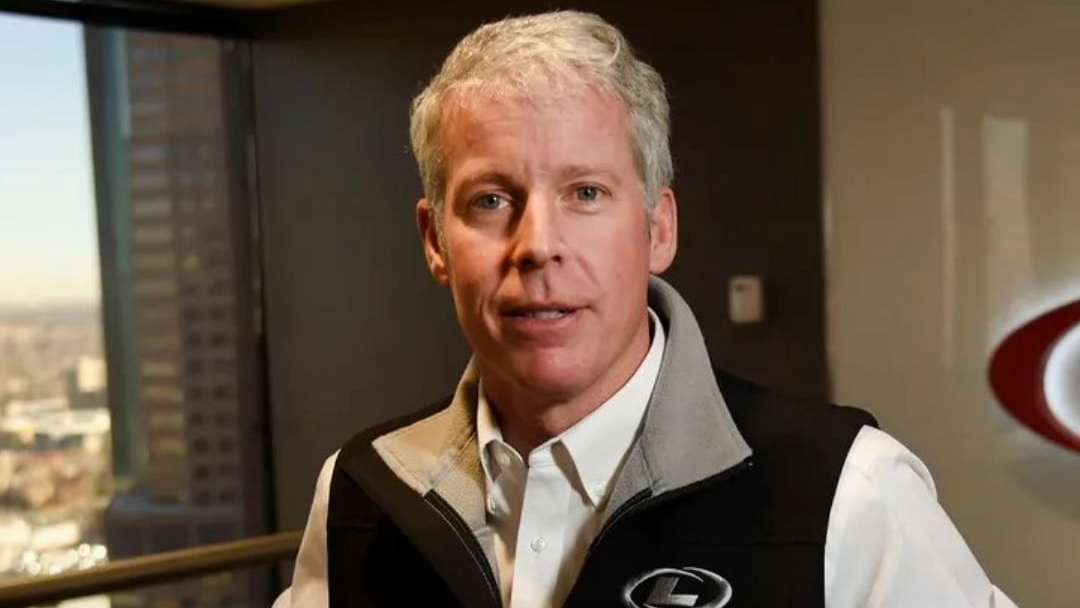Trump Appoints Oil Services CEO Chris Wright to Lead U.S. Energy Department, Drawing Strong Criticism from Climate Groups
In a decision that has sent shockwaves through both the energy sector and climate advocacy circles, President-elect Donald Trump has named Chris Wright, the CEO of Liberty Energy, to head the U.S. Department of Energy. Wright, known for his influential role in the U.S. shale revolution and his outspoken views on climate change, is seen as a controversial pick by environmentalists, raising concerns about the future direction of U.S. energy policy.
Wright’s Career in Energy: From Shale to the Department of Energy
Chris Wright has been a prominent figure in the U.S. energy industry for decades. As the CEO of Liberty Energy, a company focused on hydraulic fracturing (fracking) and well completion for energy producers, Wright has played a pivotal role in revolutionizing the American oil and gas sector. Liberty Energy, under his leadership, has become a key player in the U.S. shale oil boom, a period of explosive growth in domestic energy production that transformed the U.S. into one of the world's largest oil and gas producers.
Wright’s efforts in the shale industry are often credited with significantly reducing U.S. dependence on foreign oil, contributing to the country’s rise to energy independence. His work with hydraulic fracturing (or “fracking”) technology has reshaped global energy markets, enabling the U.S. to increase its oil and gas output while reducing imports. However, his success in the fossil fuel industry is seen as a double-edged sword. While it has been economically beneficial, it has also contributed to environmental concerns over the long-term effects of fracking on water supplies, local ecosystems, and greenhouse gas emissions.
Wright’s Climate Views Raise Alarm
While Wright’s credentials in the energy industry are well-established, his controversial views on climate change have raised alarm among environmentalists. The CEO has been an outspoken critic of the mainstream climate change narrative. In a 2023 LinkedIn video, Wright famously denied the existence of a “climate crisis,” calling it “outrageous” to suggest that carbon dioxide—an essential component of life—was a pollutant. His dismissal of carbon pollution as a pressing issue is in stark contrast to the scientific consensus that human-caused emissions of carbon dioxide and other greenhouse gases are contributing to global warming and climate change.
Wright has also publicly rejected the idea of an ongoing “energy transition” away from fossil fuels toward cleaner, renewable energy sources. In his video, he described terms such as “clean energy,” “dirty energy,” and “carbon pollution” as “deceptive” and “destructive.” These comments have made him a polarizing figure, particularly among climate advocates who argue that immediate and sustained action is necessary to mitigate the effects of climate change and transition toward sustainable energy solutions.
“The overwhelming evidence of climate change is clear,” said Amanda Leland, Executive Director of the Environmental Defense Fund (EDF). “Anyone who denies this reality, including Chris Wright, should not be leading the U.S. Department of Energy at such a critical time in our climate crisis.”
Industry Support for Wright: A Champion of Fossil Fuels
While climate activists are up in arms, many industry leaders have expressed support for Wright’s nomination, highlighting his deep expertise in the energy sector. Republican lawmakers, in particular, have lauded Trump’s decision, with Senator John Barrasso of Wyoming describing Wright as a “bold choice” who will help ensure the U.S. remains committed to an “all-of-the-above energy policy.” This policy, championed by the Trump administration, advocates for expanding the use of all energy sources—including fossil fuels, nuclear, and renewables—without prioritizing one over the others.
Industry groups such as the Energy Workforce & Technology Council (EWTC) have also welcomed the nomination, emphasizing Wright’s “unparalleled understanding of the challenges and opportunities facing the energy sector.” They believe that his leadership will be crucial in pushing forward domestic energy production and helping the U.S. maintain its energy independence. “Chris has been a pioneer in the energy sector and is uniquely qualified to lead the Department of Energy,” said the EWTC in a statement.
Wright’s work as a pioneer in fracking and shale oil production has earned him praise from energy advocates who view his technological innovations as integral to U.S. energy security and global economic competitiveness. However, critics argue that these successes come at a heavy environmental cost and that his views could delay the U.S.'s transition to a cleaner, more sustainable energy future.
The Impact of Wright’s Climate Denial on U.S. Energy Policy
Wright’s appointment signals a stark divergence in the U.S. energy strategy, with a clear emphasis on fossil fuel dominance. Under his leadership, the Department of Energy is expected to focus on removing regulatory barriers that have hindered oil, gas, and coal development, including rolling back environmental regulations that have been seen as obstacles to energy production. This approach would likely prioritize energy production from domestic oil and gas resources, further cementing the U.S. as an energy superpower while limiting investment in clean energy sources.
Environmental groups, however, warn that such an approach could undermine efforts to combat climate change and slow the development of renewable energy technologies. The EDF’s Amanda Leland pointed out that Wright’s disregard for the climate crisis could make it more difficult for the U.S. to meet its climate goals, ultimately harming both the environment and the economy. “Shutting down investment in clean energy makes America weaker,” Leland argued. “It sends jobs to other countries, raises prices, and pollutes the air and water.”
Related: IBM CEO Champions Deregulation, Innovation Amid Trump-Era Speculation
The Future of Clean Energy Under Wright’s Leadership
If confirmed by the Senate, Wright’s leadership could reshape U.S. energy policy for years to come. While Trump’s administration has made efforts to support fossil fuels, the growing global momentum toward clean energy presents a potential challenge to these efforts. Renewable energy sources such as solar, wind, and geothermal power have become cheaper and more efficient, and many countries around the world are increasingly prioritizing them over fossil fuels in an effort to meet carbon reduction targets.
However, Wright’s appointment suggests that the Trump administration will double down on fossil fuel development, potentially at the expense of renewable energy growth. The likelihood of increased natural gas exports, in particular, could lead to higher domestic gas prices as the focus shifts from balancing energy needs at home to maximizing profits from international markets. This could make energy more expensive for U.S. consumers while prioritizing foreign markets over domestic supply.
The potential impact of Wright’s leadership on the renewable energy industry cannot be understated. Many believe that his focus on fossil fuels could delay the U.S. transition to a low-carbon economy, increasing the difficulty of meeting climate targets outlined in the Paris Agreement.
Environmental Groups Mobilize Against Wright’s Nomination
The nomination of Chris Wright has already sparked protests from major environmental organizations. Ben Jealous, Executive Director of the Sierra Club, called Wright “utterly unqualified for the job” due to his history of climate denial and his role in profiting from the fossil fuel industry. “He has endangered the future of our planet and communities by pushing for more fracking and ignoring the pressing need for a clean energy revolution,” Jealous said.
Climate groups are organizing efforts to oppose Wright’s confirmation, urging the Senate to reject his nomination. They argue that the Department of Energy requires leadership that acknowledges the climate crisis and supports the development of clean, renewable energy sources that will safeguard the planet’s future.
A Pivotal Moment for U.S. Energy Policy
The selection of Chris Wright to head the U.S. Department of Energy marks a pivotal moment in the ongoing debate over the future of U.S. energy policy. With his ties to the fossil fuel industry and his denial of climate change, Wright’s appointment signals a commitment to expanding fossil fuel production at a time when the world is facing a pressing climate emergency. While his expertise in energy production is undeniable, the U.S. must balance this with a commitment to reducing carbon emissions and advancing renewable energy technologies. As the Senate prepares to vote on his confirmation, the nation faces a crucial decision about its energy future.











